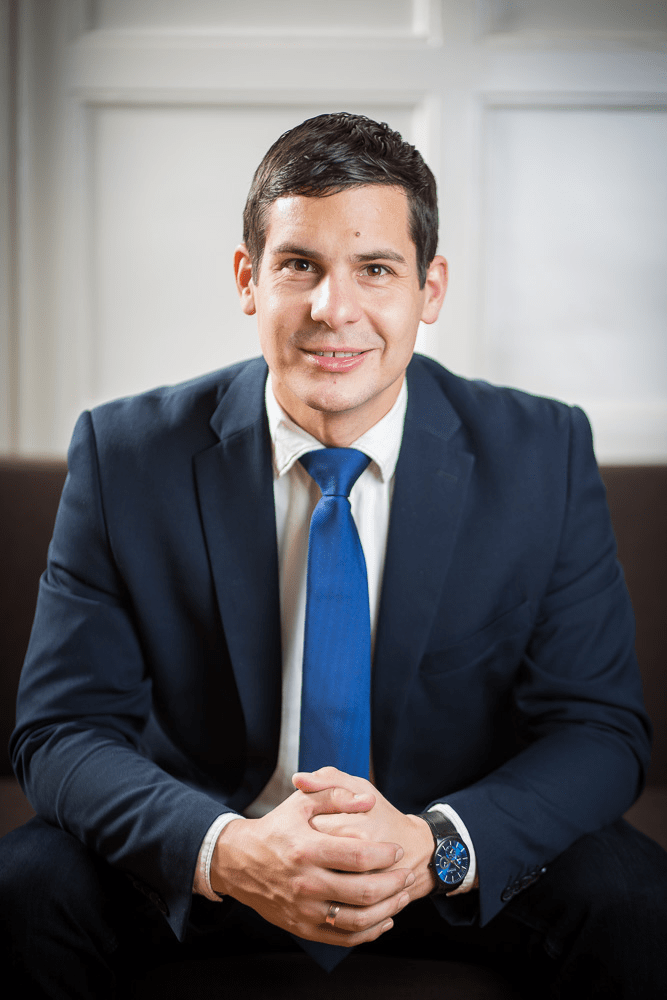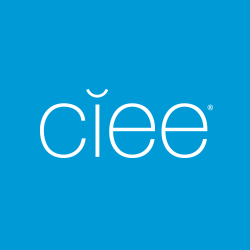HAESF professional intern alum makes waves in robotics
Tamas Haidegger came to the U.S. in 2007 as a Professional Intern through the Hungarian American Enterprise Scholarship Fund (HAESF). He was a research intern at the Laboratory for Computational Sensing and Robotics at Johns Hopkins University, working on a neurosurgical robot. In the 10+ years since, Tamas has launched an impressive career as an entrepreneur, researcher, and scholar. He is deputy director of the newly created Antal Bejczy Center for Intelligent Robotics, ÓbudaUniversity in Budapest. He is also CEO of the startup HandInScan, developers of the Semmelweis System of hand hygiene quality management, now in use in North American, European, and Japanese health care institutions. The company has employed multiple HAESF alumni in its research, development, and marketing efforts. In October 2015 Tamas Haidegger was awarded the prestigious Dennis Gabor Award in the Hungarian Parliament for his entrepreneurial achievements. The HAESF team caught up with Tamas recently and asked him about his work.
Your research is in the field of Long Distance Teleportation control. Could you tell us more about what this is and your work?
I was very interested in Space Robotics and through a Physician colleague, who asked questions about the possibility about performing long distance surgery in space, my interest in this area increased. Despite the fact that surgical robotics started in 1975 with the aim to support astronauts, there was no research on the physical consequences of space travel. Hence I chose the topic of my thesis to be the feasibility of such analysis and whether tele-surgery will be possible.
The field of long distance teleportation control became a hot topic in research when tele-robotics became possible. There are a lot of transatlantic and transcontinental robotic research experiments that are undertaken in this area today. In the meantime, I still think that it is very extreme and the more we think about going to the moon and shooting from Mars the more interesting the area is becoming.
How did the idea of HandInScan come about?
The idea of HandInScan came from one of my students who worked in hospitals. He researched the process doctors and nurses sanitized their hands after surgery. There are a lot of market products but when not used properly can cause infections which actually happens more times than we know of. In the western world, statistics also say that about 200,000 people die because of secondary infections they receive at hospitals during getting a treatment. HandInScan is an engineering machine which scans hands to point out the missed areas after regular sanitization is done. There is also a reporting function in the machine which sends reports and statistics to the management for analysis to make sure that processes are running correctly.
Between conducting research, leading a company and teaching, how do you manage your time?
Excellence in research involves good methodology, very thorough basic knowledge and good people you work with can really make you successful in research and this can be translated into good startups. Teaching has provided me with the sales skills required to run this startup successfully. Also because the company is embedded into the university itself, management is something that I think I am doing well.
How do you think that your experience as a professional intern in the United States has shaped your career?
The HAESF internship was a life-changing experience, which still determines my daily activities. I learnt quite a bit about high-end scientific resarch, researchc and education management, laboratory project management, scientific paper and grant writing, and picked up various other soft skills. Also, the professional relationships lasted: I have sent numerous students to the US, having joint grants with Johns Hopkins University and an active working relationship with numerous groups I got to know during my stay.
What is your advice to young people just starting out their careers?
Two key messages that I really live by and would like to share with young professionals worldwide. First, if you can enjoy your job, you will never have to work your entire life. And secondly, as an entrepreneur the best thing you can do is get smarter people aboard and make them excited about your problem. And this will help you be creative both in academic and business.

